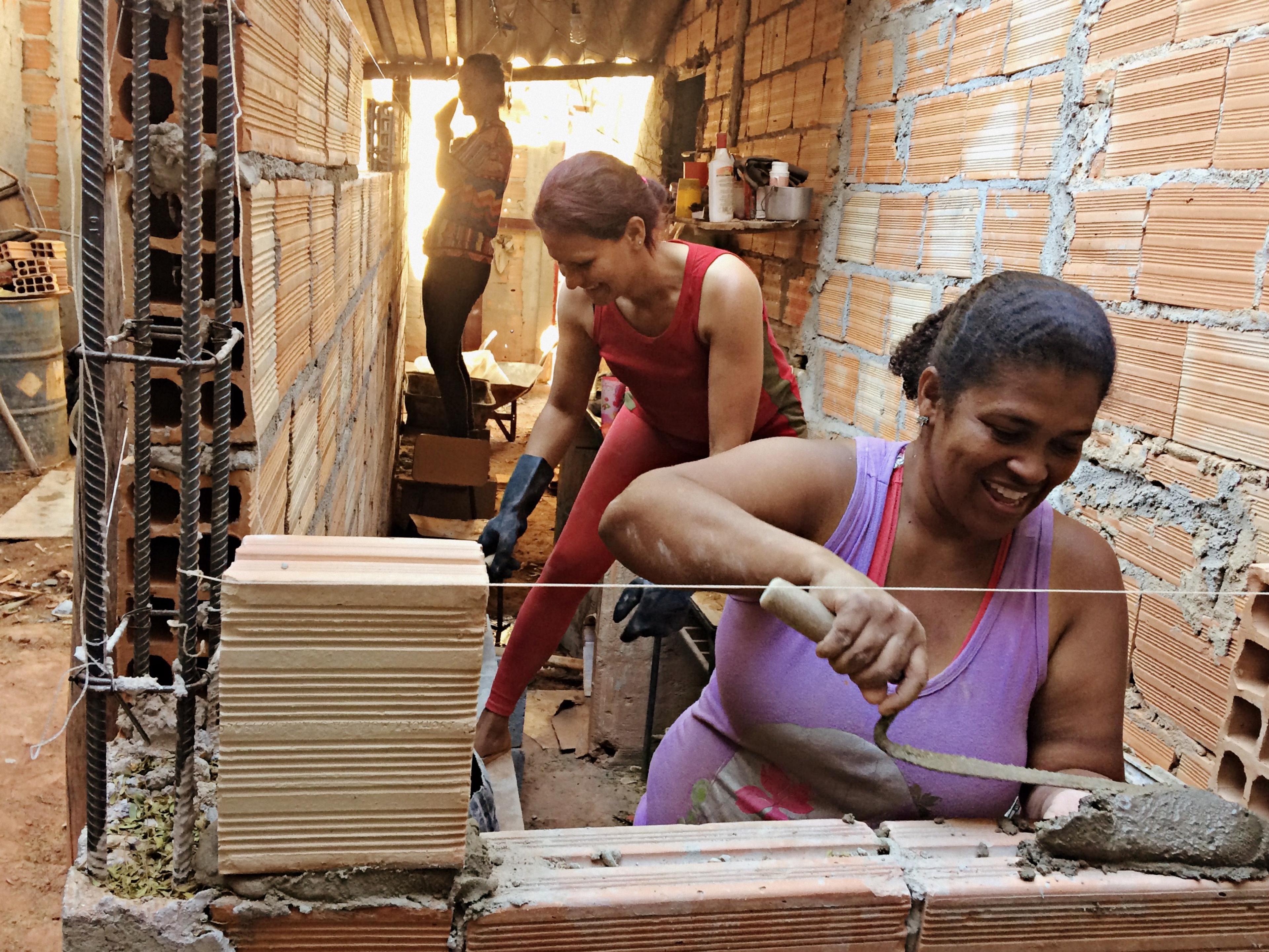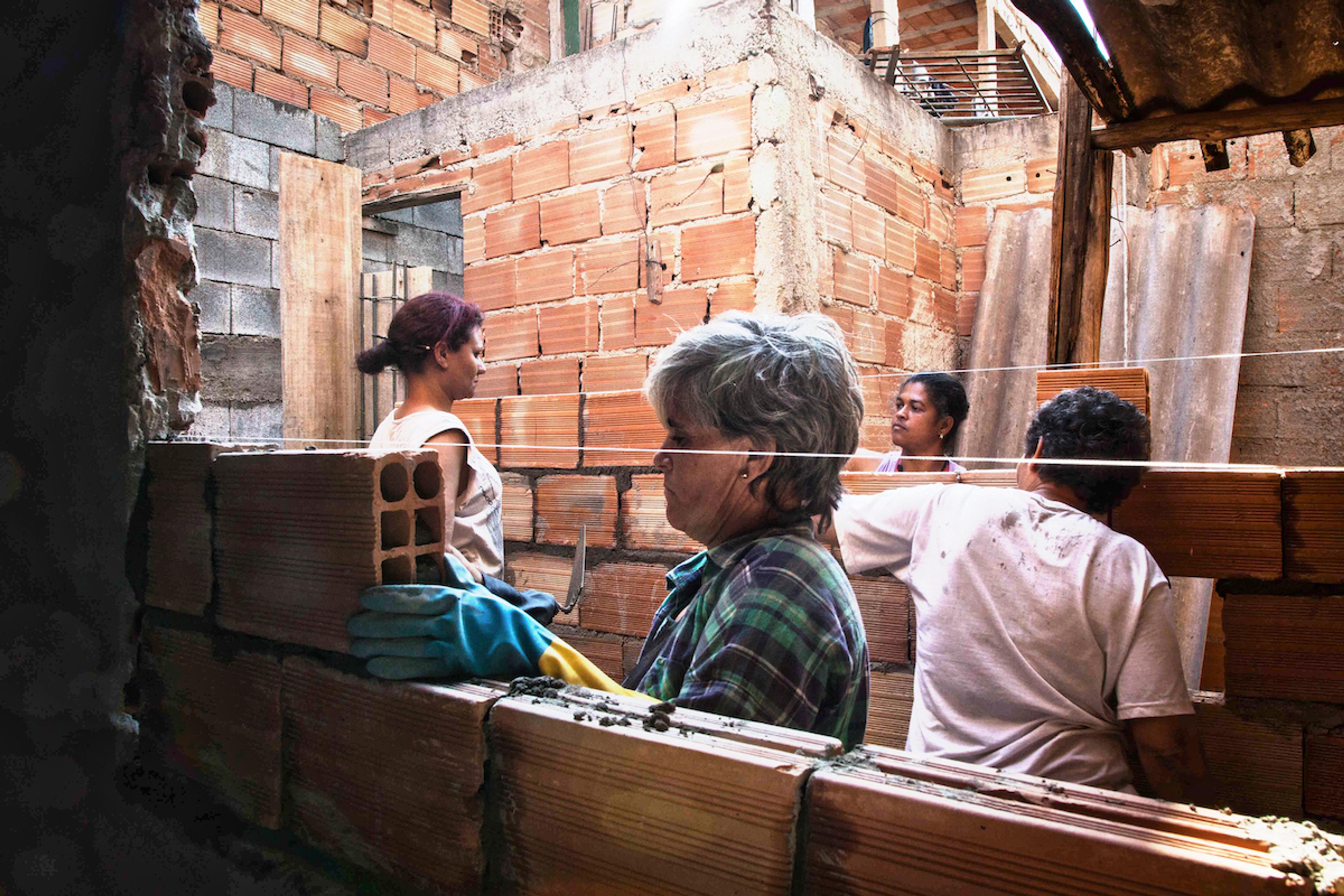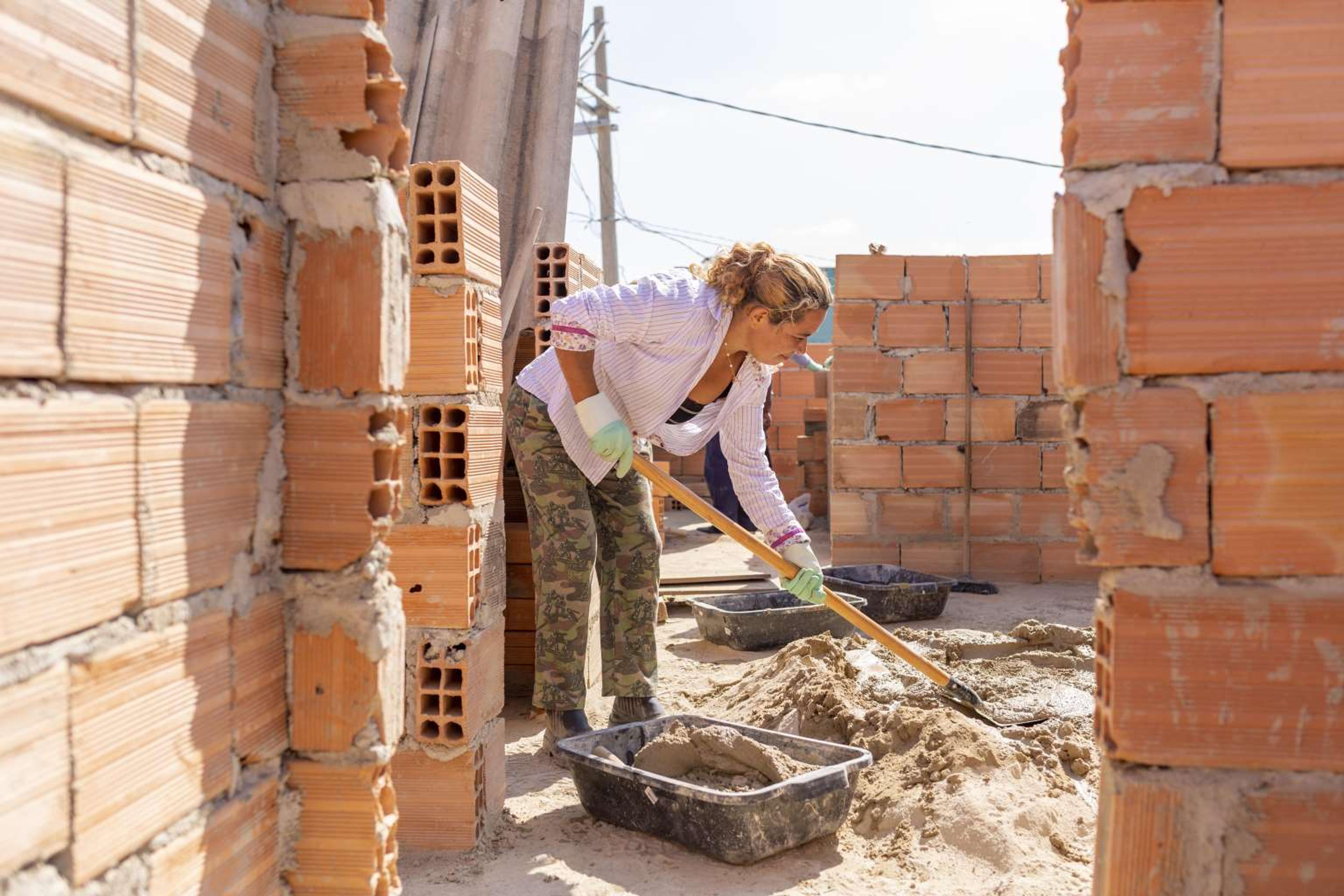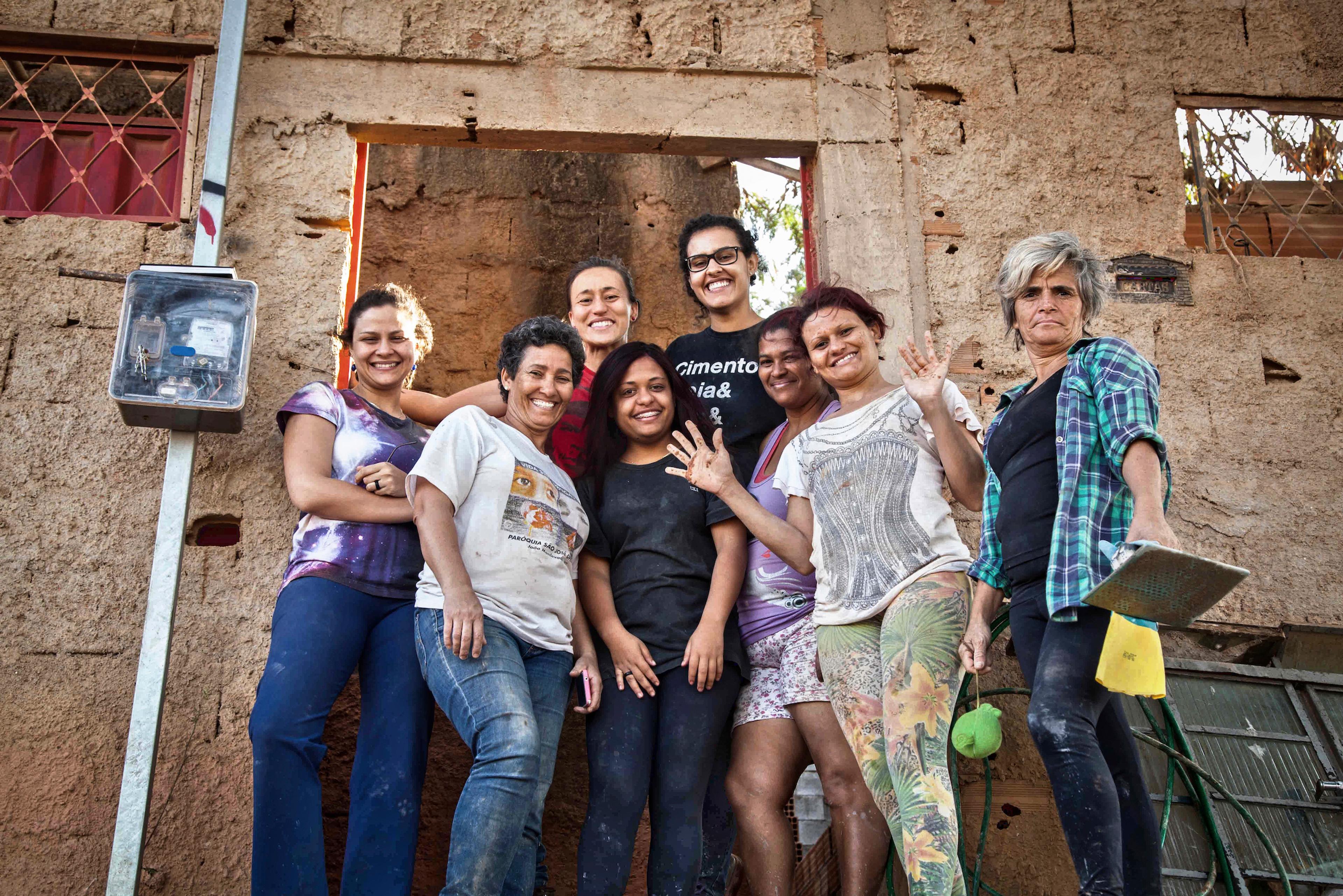
“Our main purpose is to empower women to get together and understand that they’re capable of not only making house improvements, but learning new skills that can improve their lives. We understand architecture as a tool to help women gain autonomy.”
Carina Guedes, the founder and coordinator of Arquitetura na Periferia—which translates to architecture on the periphery—describes the organization’s goal to foster women’s independence as “turning the key inside their minds.” Based in Belo Horizonte, Brazil, Arquitetura na Periferia provides women across the state of Minas Gerais the education, autonomy, and funding to restore or build their homes. The results are two-fold—there is the material outcome and then, reverberating and less tangible, that aforementioned key-turning. The participating women recognize their own capabilities, their own independence.

Arquitetura na Periferia, an all-women organization, has operated independently since 2014, following Guedes’s research at the Federal University of Minas Gerais, where she studied architecture. Part of their work involves educational workshops for local women; they also offer training to professionals in various fields who hope to create sustainable development and change in Brazil. For Guedes, an accomplished architect—and winner of the Marielle Franco Community Design Award in 2018—architecture on the periphery expands both the definition of what architecture is and whom it’s for. “Architecture is any modification of the space, made by human hands, for any person,” she explains, quoting Architecture as a critical exercise, a text by research group Grupo MOM, with whom she connected at the University. “This modification doesn’t have to be made by a person who’s called ‘an architect,’ or who studied in a university. Housing is a basic, fundamental human right.”

Guedes understands firsthand how the discipline of architecture doesn’t typically consider or include those in need. “Housing is a serious problem here in Brazil,” she says. “It bothered me that our profession doesn’t get to these people. We were always working with big construction sites, or people who have lots of money. Most people are building their own homes with no access to any service or knowledge.” These self-made homes, necessitated by the country’s lack of affordable housing, are often designed using scarce resources, without any vital structures in place. A large part of Belo Horizonte comprises houses like these and, says Guedes, “it’s crazy that we don’t see the people who construct their own homes and their houses as relevant.” When Guedes founded Arquitetura na Periferia, she chose “to work only with women, because even when these types of houses are constructed, women don’t have a voice”—despite being the family members who spend the most time caring for the home itself.

Arquitetura na Periferia uses a three-pronged approach in each project: cooperation (all projects involve the formation of small groups, fostering relationships, and encouragement); self-management (the women participate in every single decision of home redevelopment); and microfinancing (the assisted women receive a loan to use as they wish—whether purchasing materials or hiring contract services). They work to ensure the houses are built sustainably, “with no waste of materials,” says Guede, and seek to teach the women techniques that utilize renewable materials, materials from the earth. As of May 2023, Arquitetura na Periferia has conducted over 1600 hours of workshop training and impacted over 3,000 people. Guedes recalls one woman who lived with her daughter in a home without a bathroom. “It was her ex-husband who built the house with just two rooms; she just didn’t see herself as capable of doing anything about it. With the program and the girls from her group, she saw that she didn’t have to wait for anybody. She started building the bathroom from zero.” With some extra financing to hire contract services, the bathroom was complete; the young woman described it to Guedes as “a kick to start her life.” Another girl didn’t make changes to her home, says Guedes, but “she went to all the workshops. She sent us a message saying she got into university. She had the answers to the entrance exam from visiting our meetings, because we talk about politics and other subjects. This is what I’m interested in seeing happening—this growth. This is something that keeps me going.”
Arquitetura na Periferia